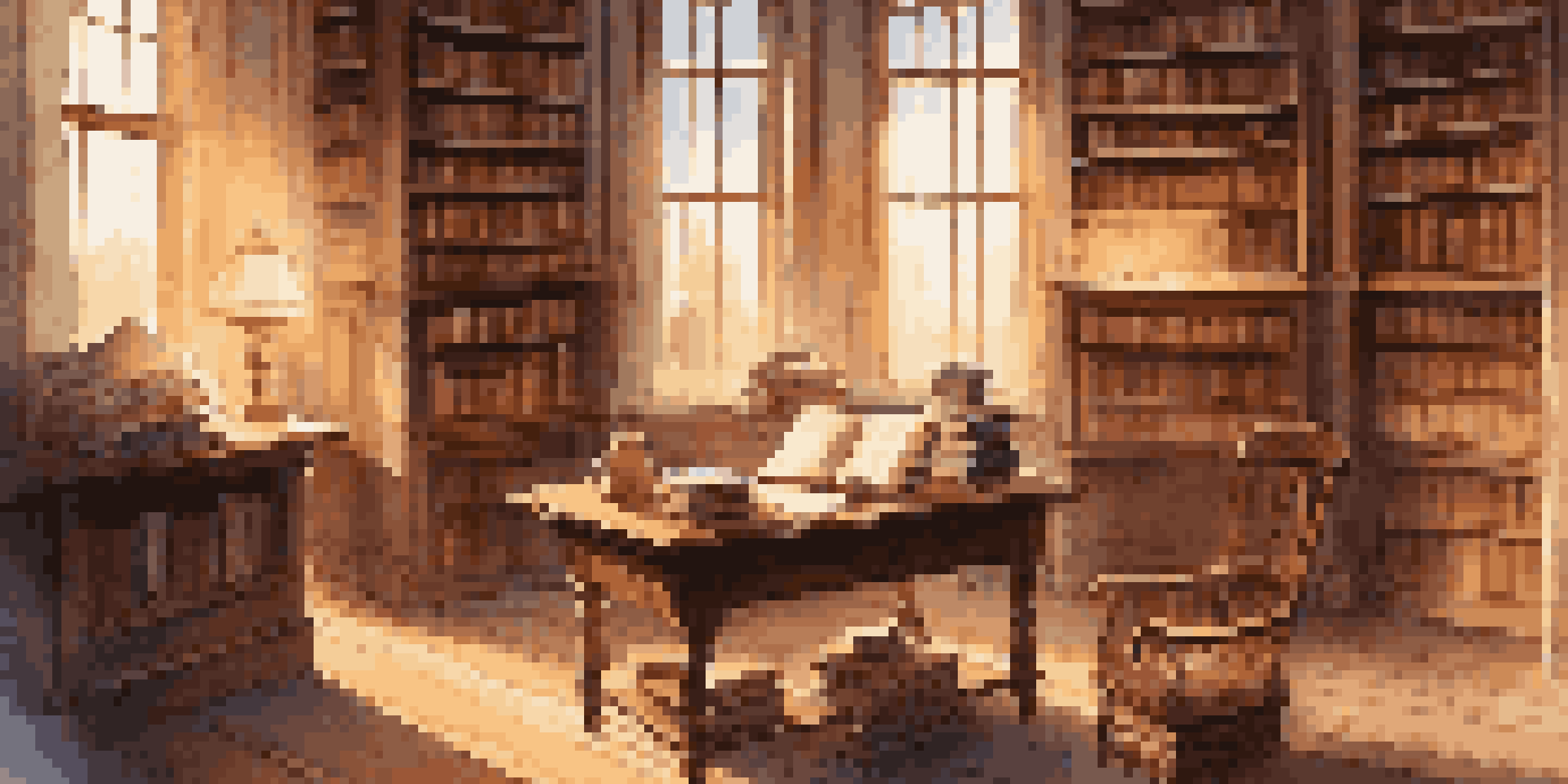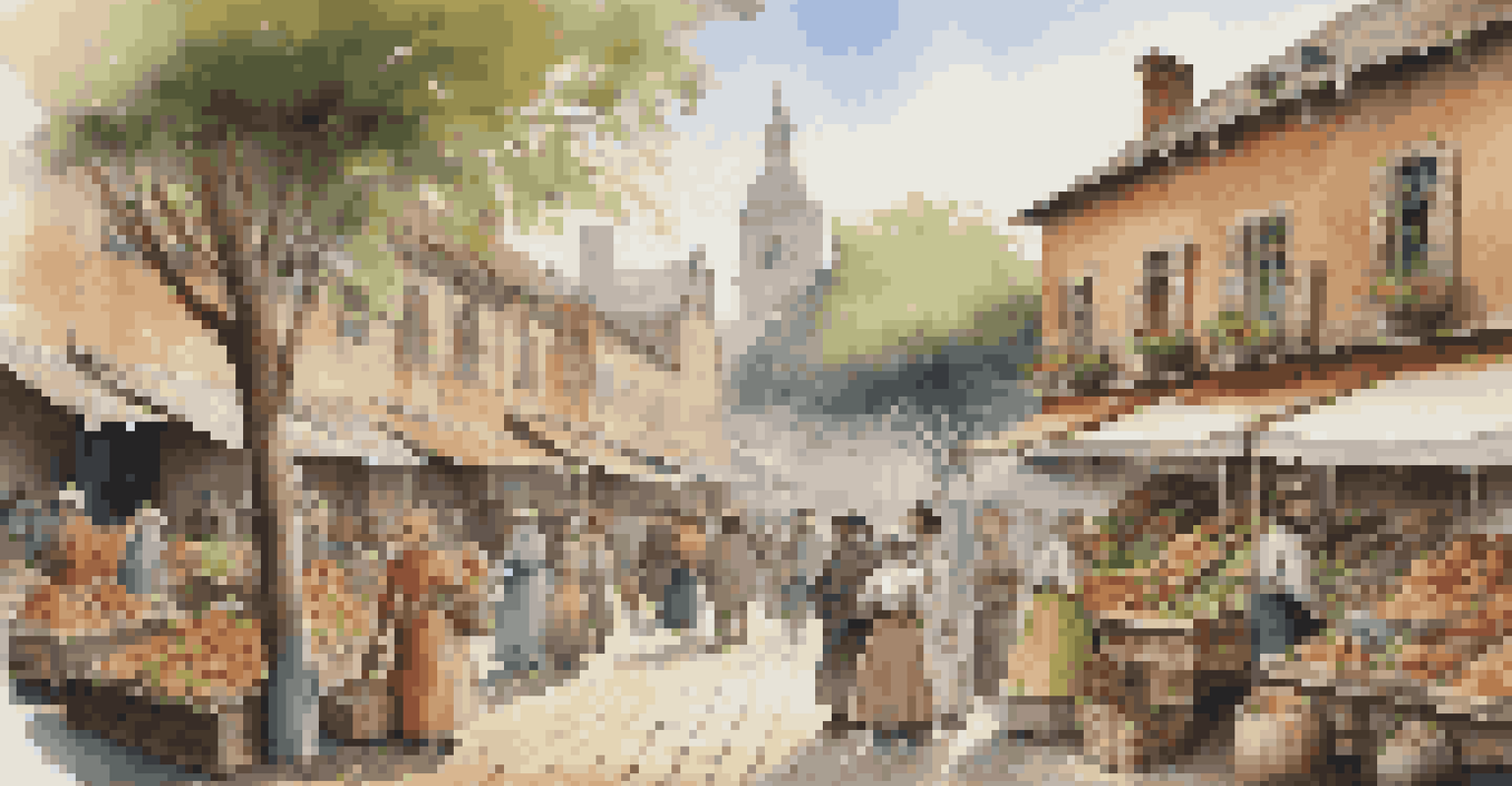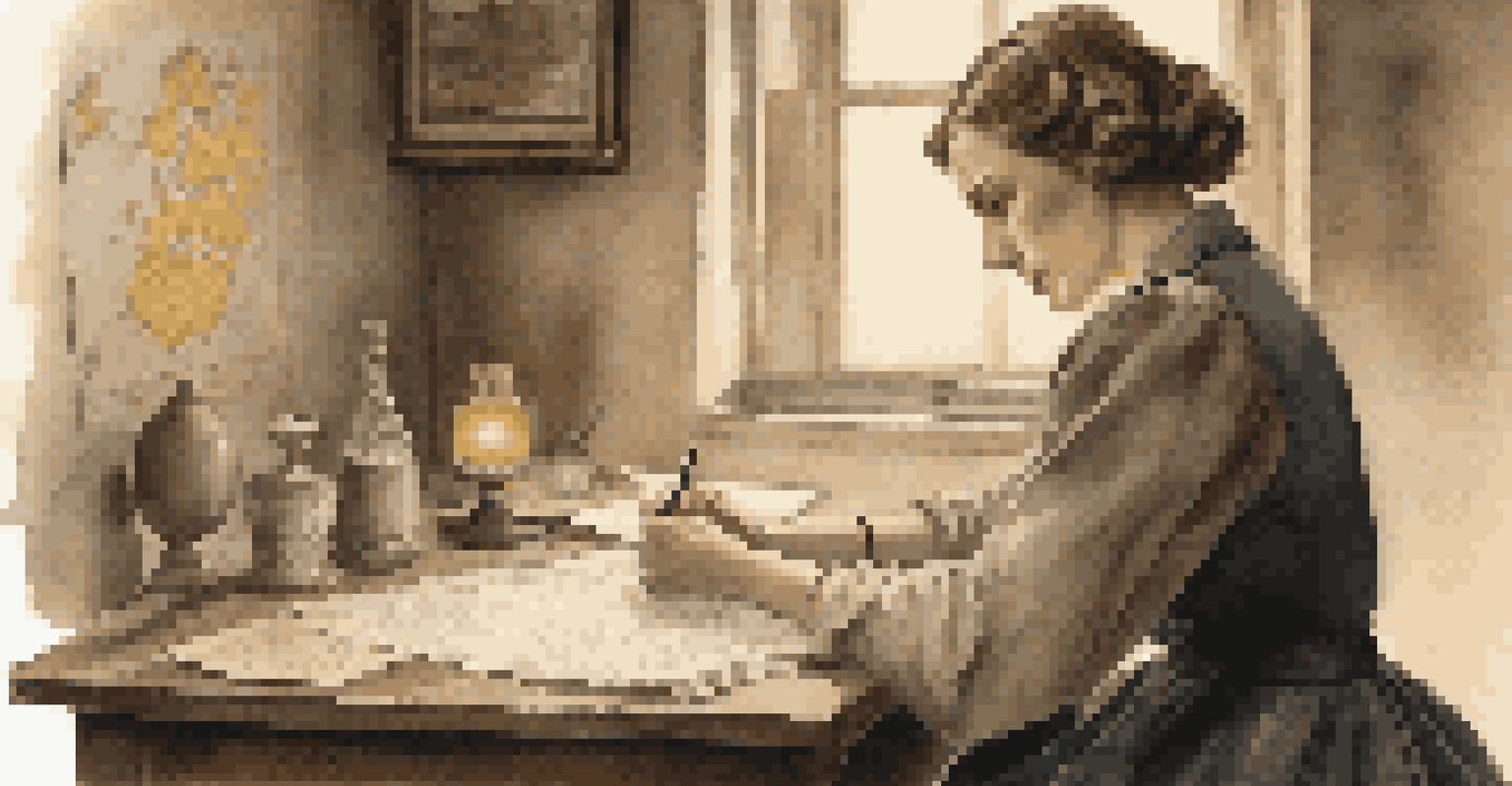The Value of Historical Fiction in Understanding the Past

Understanding History Through Storytelling
Historical fiction weaves together facts and imagination, creating a narrative that brings the past to life. Through engaging characters and vivid settings, readers can visualize historical events in a way that textbooks often cannot. This storytelling method fosters empathy and connection, allowing us to step into the shoes of those who lived in different times.
History is not a burden on the memory but an illumination of the soul.
For instance, novels like 'The Book Thief' or 'All the Light We Cannot See' transport readers to World War II, revealing the emotional truths behind the statistics. By experiencing these stories, we gain a deeper understanding of the human experiences that shaped history. This connection can make the past feel more relevant and relatable to our lives today.
Ultimately, the power of storytelling in historical fiction lies in its ability to engage us emotionally, bridging the gap between our modern lives and the historical events that have influenced our world.
Filling the Gaps in Historical Narratives
While history books provide facts and timelines, they often overlook the personal stories of those involved. Historical fiction has the unique ability to fill in these gaps, exploring perspectives that may not be well-documented. For example, novels that focus on underrepresented voices, like women or marginalized communities, can shed light on their experiences and contributions.

By highlighting these personal narratives, historical fiction invites readers to question the dominant narratives we often encounter. It encourages a more nuanced understanding of history, prompting us to consider whose stories are being told and whose are left out. This exploration can lead to richer discussions about identity, culture, and power dynamics throughout history.
Storytelling Makes History Relatable
Historical fiction brings the past to life through engaging narratives, helping readers connect emotionally with historical events.
In this way, historical fiction acts as a powerful tool for social reflection, helping us to recognize the complexities of the past and how they continue to resonate today.
Inspiring Critical Thinking About the Past
Engaging with historical fiction encourages readers to think critically about the past. It pushes us to ask questions: Why did certain events happen? What were the motivations of the people involved? By examining these questions through a narrative lens, we develop a more comprehensive understanding of historical context and causation.
We can never understand history unless we understand the stories that make up our past.
This critical engagement is crucial in today's information age, where we are constantly bombarded with narratives that may skew historical facts. Fiction allows us to approach history with a sense of curiosity, prompting us to seek out multiple perspectives and sources. In doing so, we can better discern between fact and fiction, fostering a more informed worldview.
Ultimately, the act of questioning and analyzing historical narratives through fiction cultivates a deeper appreciation for the complexities of our shared past.
Enhancing Empathy and Understanding
One of the most profound impacts of reading historical fiction is its ability to cultivate empathy. By immersing ourselves in the lives of characters from different times and cultures, we can better understand their struggles and triumphs. This emotional connection enables us to see history not just as a series of events, but as a tapestry of human experiences.
For instance, novels like 'The Nightingale' explore the resilience of women during wartime, allowing readers to feel the weight of their choices and sacrifices. This emotional resonance helps us connect with our shared humanity, fostering compassion for people across different eras and backgrounds. Empathy gained through these narratives can inspire us to advocate for social justice and equality in our own time.
Empathy Through Diverse Perspectives
By highlighting personal stories, historical fiction fosters empathy and understanding for underrepresented voices in history.
As we engage with these stories, we realize that the past is not just a distant memory; it's a part of the ongoing human experience that shapes our values and beliefs today.
Bringing Historical Context to Contemporary Issues
Historical fiction serves as a lens through which we can examine contemporary issues. By exploring themes such as war, oppression, and resilience, we can draw parallels to current global challenges. For example, stories set during the Great Depression can provide insights into economic struggles faced today, highlighting the cyclical nature of history.
This connection between past and present is critical for understanding the roots of modern societal issues. Historical fiction prompts readers to reflect on how historical events have influenced contemporary politics, culture, and social dynamics. Recognizing these links can empower us to engage more thoughtfully in discussions about our current world.
In essence, historical fiction not only entertains but also educates us on the ongoing narrative of human experience, equipping us to navigate present-day challenges.
Encouraging Lifelong Learning and Exploration
Diving into historical fiction often sparks curiosity about the actual events and figures behind the stories. Readers may find themselves wanting to learn more about specific historical periods or explore related non-fiction texts. This desire for knowledge can lead to a deeper exploration of history, encouraging lifelong learning.
For instance, after reading a novel set in ancient Rome, a reader might delve into historical texts about Roman civilization, art, or politics. This journey of discovery enriches our understanding of the past while expanding our intellectual horizons. It reminds us that history is not just a static collection of facts, but a dynamic field that continues to evolve.
Connecting Past and Present Issues
Historical fiction provides insights into contemporary challenges by drawing parallels between past events and current societal issues.
Ultimately, the journey through historical fiction can ignite a passion for history that lasts a lifetime, transforming readers into informed citizens who appreciate the complexities and nuances of the past.
Creating a Sense of Connection to Our Roots
Historical fiction often allows readers to explore their own ancestry and cultural heritage. By encountering characters and stories that reflect our backgrounds, we can gain a deeper appreciation for our roots. This exploration can foster a sense of identity and belonging as we connect with the experiences of those who came before us.
For many, reading about historical events that impacted their ancestors can evoke a sense of pride and continuity. Novels that feature specific cultural traditions or historical events related to one's heritage can serve as a reminder of the resilience and strength of those who forged our paths. This connection to our past can be deeply empowering.

In this way, historical fiction not only entertains but also reinforces our sense of self, encouraging us to celebrate our unique identities within the broader tapestry of human history.